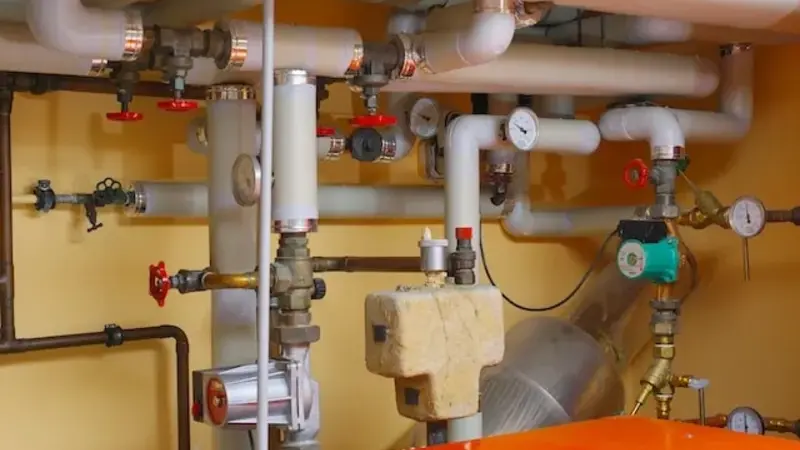Ensuring a reliable and efficient plumbing system is foundational for any residential or commercial property. With ongoing advancements in materials and technology, building owners and homeowners alike must focus on proven strategies to maximize durability, efficiency, and sustainability in their piping infrastructure. If you’re considering upgrades or require large-scale replacements for your system, seeking expert pipe replacement Gaithersburg helps guarantee quality and compliance from the outset. Adopting best practices fortifies your plumbing system against wear, environmental challenges, and unexpected repairs.
Modern plumbing design now goes beyond the bare essentials, incorporating smart technology and eco-friendly innovations. From material selection to ongoing maintenance, this guide offers a comprehensive overview to help you future-proof your home or facility while reducing costs and environmental impact.
Key Takeaways
- Utilize advanced materials, such as PEX and composite pipes, for enhanced durability and flexibility.
- Implement smart plumbing technologies to effectively monitor and control water usage.
- Adopt sustainable practices, including water-efficient fixtures and greywater recycling systems.
- Stay informed about local plumbing codes and regulations to ensure compliance with relevant standards and regulations.
Advanced Piping Materials
The backbone of any dependable plumbing system is the quality of its piping. Gone are the days when copper and PVC dominated every installation. Today, cross-linked polyethylene (PEX) has become a leading choice for both new construction and retrofits due to its flexibility, resistance to scale, and ease of installation, even around corners and obstacles. Composite pipes, which strategically combine materials such as aluminum and polypropylene, surpass traditional options in both strength and corrosion resistance, thereby further reducing the risk of leaks and water quality issues over time.
By choosing these advanced solutions, property owners also benefit from improved longevity and fewer interruptions for repairs. Modern piping materials not only offer superior performance but can also streamline installation and reduce labor costs, particularly in complex or high-usage commercial environments.
Smart Plumbing Technologies
Technology is reshaping every aspect of home maintenance, including plumbing. By integrating smart controls, sensors, and remote monitoring, homeowners can achieve greater peace of mind and potentially notice significant cost savings. For instance, smart leak detectors can immediately identify hidden leaks behind walls or beneath floors, enabling proactive intervention before costly water damage occurs. Automated shutoff valves can halt water flow instantly during emergencies, such as pipe bursts, thereby minimizing both the damage and repair expenses.
Water usage monitors connected to home automation systems enable real-time tracking and optimization, helping owners detect unusual consumption patterns and conserve water effectively, a particularly valuable asset during droughts or in areas with high utility rates.
Sustainable Practices
Prioritizing sustainability plays a crucial role in modern plumbing, both in responsible resource management and in achieving ongoing savings. Start with high-efficiency fixtures, such as dual-flush toilets, aerated faucets, and low-flow showerheads, which significantly reduce water usage without sacrificing comfort or performance. Implementing systems like rainwater harvesting or EPA-certified appliances further enhances efficiency and environmental stewardship.
Greywater recycling systems deserve special mention: these systems treat and redirect gently used water from sinks, washers, and showers for landscape irrigation and toilet flushing, helping properties dramatically decrease their environmental footprint.
Proper Installation Techniques
Even the best materials and technologies can falter without precise installation. For minimal disruption, trenchless pipe repair technologies allow technicians to replace lines under lawns or driveways without the need for extensive excavation. Proper pipe insulation is essential to prevent heat loss in hot water lines and protect against freezing during cold spells, which can cause dangerous bursts and leaks.
Moreover, closely following manufacturer guidelines and adhering to industry standards throughout installation safeguards against future system failures and costly callbacks, ensuring years of trouble-free operation.
Regular Maintenance
Long-term performance hinges on regular, proactive maintenance. Schedule periodic inspections to identify corrosion, leaks, or pressure inconsistencies before they develop into serious issues. Simple actions, such as cleaning drains, checking washer hoses, and assessing valve function, can prevent major blockages and costly water damage.
For optimal protection, hire professionals for annual system evaluations. Licensed plumbers can identify early warning signs in hard-to-access areas and extend the functional lifespan of valves, fixtures, and piping through expert cleaning and replacement of parts.
Compliance with Plumbing Codes
Maintaining compliance with local codes and national guidelines, such as the International Plumbing Code (ICC), ensures safety, legality, and peace of mind. Codes specify minimum requirements for pipe sizing, backflow prevention, vent configurations, and system inspection timelines. Installing approved materials, securing all relevant permits, and scheduling proper inspections protects owners from liability, maintains valid insurance, and avoids unexpected fines or compulsory modifications down the road.
Adopting these forward-thinking best practices equips your property for years of efficient service, environmental responsibility, and cost savings. By embracing the latest materials, technology, and sustainable innovations, you establish a secure and future-ready foundation for your plumbing system and property. Visit my Website.
